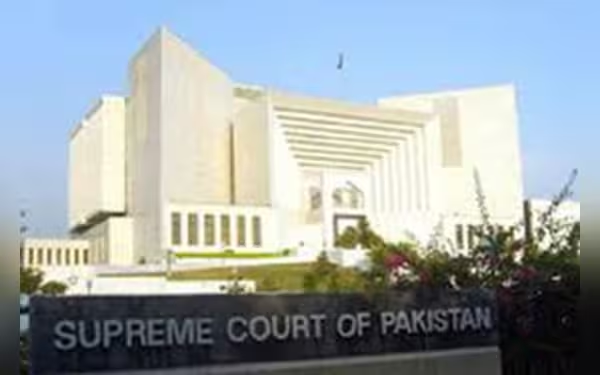Saturday, November 16, 2024 05:33 PM
Supreme Court Suspends Re-Counting Order in PB-45 Balochistan
- Supreme Court reinstates Ali Madad Jatak's victory.
- Re-polling order suspended amid election disputes.
- Case adjourned until October 21 for further deliberations.
 Image Credits: nation_pk
Image Credits: nation_pkSupreme Court suspends re-counting order in PB-45, reinstating Ali Madad Jatak's victory amid ongoing electoral disputes.
The political landscape in Pakistan often witnesses dramatic turns, and the recent decision by the Supreme Court of Pakistan is no exception. On Thursday, the Supreme Court suspended an earlier ruling that mandated re-polling in 15 polling stations of the PB-45 constituency in Balochistan. This decision has significant implications for the political dynamics in the region, particularly for the Pakistan Peoples Party (PPP) and its candidate, Ali Madad Jatak.
The Supreme Court's ruling reinstates Jatak's victory, which had been challenged by the election tribunal. The tribunal had ordered a re-counting of votes based on claims of discrepancies in the election forms, specifically Form 45, which is crucial for documenting the results of elections. During the court proceedings, Jatak's lawyer argued that the election tribunal's decision was based on contradictions in these forms. While 15 candidates raised concerns about the forms, only four were able to present their claims before the tribunal.
As the case unfolded, the three-member bench, led by Justice Amin ud Din Khan, listened carefully to the arguments presented. The court's decision to serve notices to the respondents indicates that the matter is far from over. The case has been adjourned until October 21, allowing time for further deliberations and responses from the involved parties.
This situation highlights the complexities of the electoral process in Pakistan, where disputes over election results can lead to significant legal battles. The initial order for re-polling was initiated by Usman Barkani, the candidate from Jamiat Ulema e Islam (JUI), who sought to challenge the legitimacy of the election results. Such disputes are not uncommon in Pakistan's political arena, where the stakes are high, and the outcomes can shape the future of political parties and their candidates.
The Supreme Court's suspension of the re-polling order in PB-45 serves as a reminder of the ongoing challenges within Pakistan's electoral system. As the case progresses, it will be crucial for all parties involved to adhere to the principles of transparency and fairness. The outcome will not only affect the candidates but also the voters who place their trust in the democratic process. It is essential for the integrity of elections to be upheld, ensuring that every vote counts and that the voices of the people are heard.













